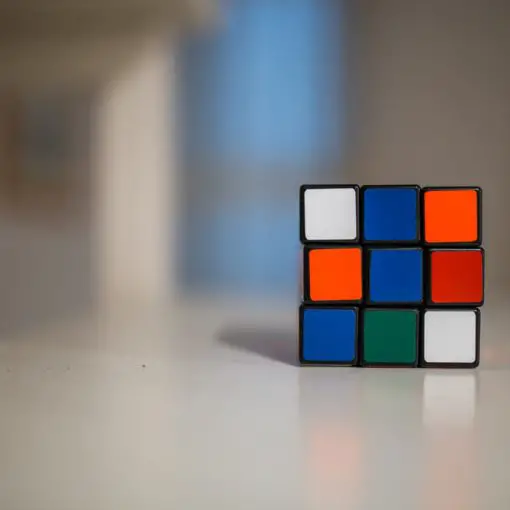For the entirety of human history, we’ve been thinking― thinking about our future, our morality, and even the meaning of life itself. People have forged many schools of thought in our long history of self-awareness. Thinking, it seems, is not as straightforward as we believe.
Self-professed critical thinkers and freethinkers have a lot in common, but what defines the difference between critical and free thinkers?
Critical thinkers apply an objective mindset to analyze the nature of a question and answer it in the way that seems most logical, consistent, and applicable.
Freethinkers, on the other hand, tend to reject any overarching form of authority, particularly religious authority.
There are many junctions at which the mindset of a critical thinker and a freethinker may intersect, and many more where these two schools of thought diverge. The rest of this article will define both critical and free thinking and explore their similarities and differences.
Just What Is Critical Thinking?
Critical thinking is, at its heart, very goal oriented. The core tenet of critical thinking is to pursue the most probable answer to its natural conclusion.
Pragmatic and reflective, critical thinkers are always pursuing knowledge about their world, actively consuming information rather than just receiving it passively. Of course, the ability to think critically is highly sought after in higher education circles.
Being able to understand the connection between two ideas, assess the validity and relevance of information, and reflect on the accuracy of one’s own judgement is the hallmark of a robust critical thinker.
Such thinkers are, as you might well imagine, very introspective and will constantly reflect upon the implications of an idea as well as how it relates to other ideas.
Critical thinkers tend to reflect on what they already know about a topic, what that knowledge means, and how that knowledge can be applied in the future. Some reflective questions these thinkers might ask include the following:
- What do I already know about X?
- What is the significance of X?
- How could X be used to understand Y?
- What is the difference between X and Y?
- What causes X?
- What is another way to understand X?
Critical thinkers relate everything they know to something else, creating an interconnected network of information that they use as a basis for their beliefs, decisions, and understanding of the world around them.
Just What Is Free Thinking?
Freethinkers are suspicious whenever someone, particularly someone in a position of power, tells them anything about anything. Extraordinarily nonorthodox, freethinkers buck convention in thought.
They hold that any belief promulgated by religious authority, dogmatic texts, or spiritual revelations should be treated with great scrutiny and a healthy dose of skepticism.
But don’t think that freethinkers are just some incensed group of atheists leaving scathing remarks in the comments section of apologist YouTubers. Freethinkers may in fact be religious themselves.
They have just likely come to those conclusions entirely apart from any sectarianism or perceived confirmation bias.
As such, a freethinker might assert that holy texts such as the Bible, Qur’an, or the Vedas may be true, but confirmation of that truth can only come from objective personal inquiry rather than tradition, cognitive bias, or conventional understanding of the texts.
Eschewing conventional religious beliefs often leads free thinking to be strongly associated with irreligion, deism, agnosticism, atheism, and secular humanism.
Unwillingness to accept dogma makes free thinking distinctly critical of organized religion and fiercely independent of their own thought.
Indeed, since many religious claims cannot be tested or verified, freethinkers often find themselves at odds with those they perceive as conformists who merely tow the line.
Finding one’s own truth is the mantra of a freethinker, and every practitioner of freethought highly regards their own individuality and capability of unique thought.
How Are Critical Thinking and Free Thinking Similar and Different?
Both critical thinking and free thinking hold a high place of honor for reason and rationality. If a truth can be objectively verified, then it is truth indeed.
Furthering one’s knowledge is paramount to effective critical or free thinking, and both schools of thought tend to conclude that objective evidence is key to ascertaining truth. The major difference between the two is their reactions to authority.
Critical thinking regards authority somewhat stoically, if not slightly positively. It is, after all, a reflection of the conclusions of many former critical thinkers.
Even critical thinking itself can be seen as a product of charismatic authoritative figures disseminating information and ideas about how to view the world to their ‘followers.’
What the majority concludes on a subject of thought may be considered useful to a critical thinker who would pose questions such as, “Why does the majority believe this?” or “What is the link between what the majority believes and what the minority believes?”
Freethinkers allow no such contemplation when it comes to authority. While critical thinkers may find revelations, religious texts, and conventional wisdom to be useful subjects about which to think, freethinkers allow for no such conformity to tradition.
The very idea of free thinking― to think freely― is to separate oneself from accepting beliefs from any other source than empirical proof.
A critical thinker, on the other hand, would be just as capable using their moral landscape, religious convictions, or ethical beliefs as a foundation from which to exercise critical thought.
A critical thinker might even be, well, critical of a freethinker’s quick dismissal of organized religion as an invalid source of truth, even going so far as to name the freethinker’s instant invalidation of religiously-oriented thought as subjective and fallacious thinking.
Indeed, perhaps a critical thinker would also note that a prospective freethinker must conform to the notions and commonly held beliefs of other freethinkers to be considered one themselves, supposedly defeating the purpose of individual thought.
Hopefully, this discussion on the nature of and differences between critical thinking and free thinking has left you intrigued in exploring the world of philosophical thought. Now, only one question remains: what do you think?
References
https://www.brown.edu/sheridan/teaching-learning-resources/teaching-resources/classroom-practices/learning-contexts/discussions/questions-critical-thinking#:~:text=Questions%20to%20Provoke%20Critical%20Thinking%20%20%20,we%20learned%20…%20%2023%20more%20rows%20
https://ffrf.org/component/k2/item/18391-what-is-a-freethinker





